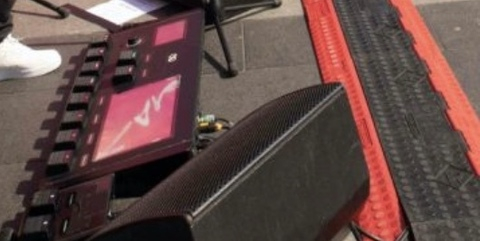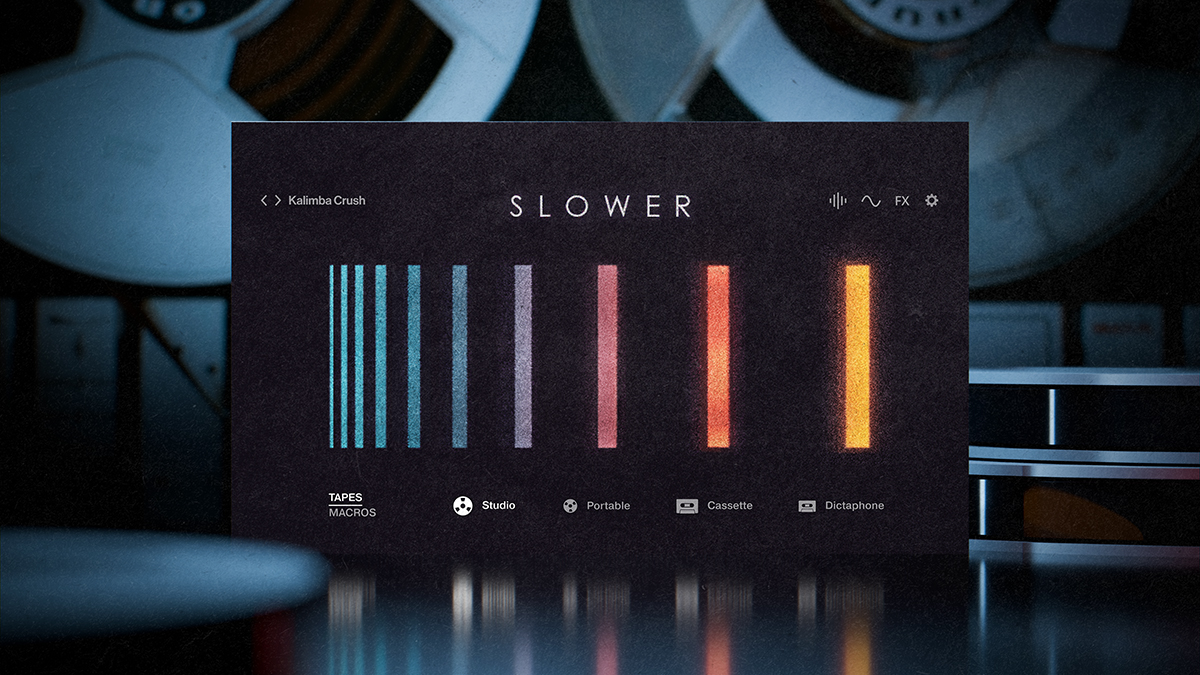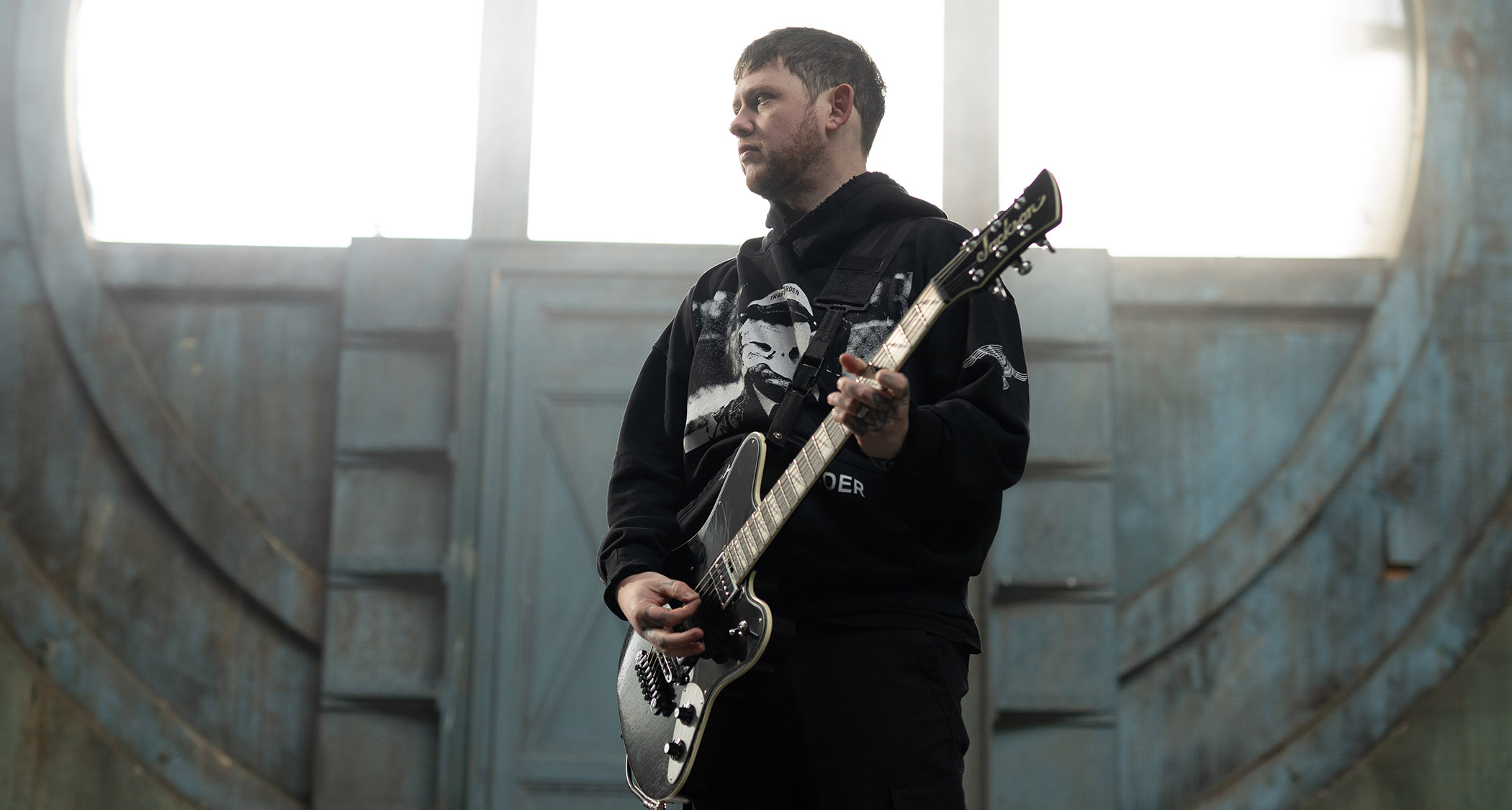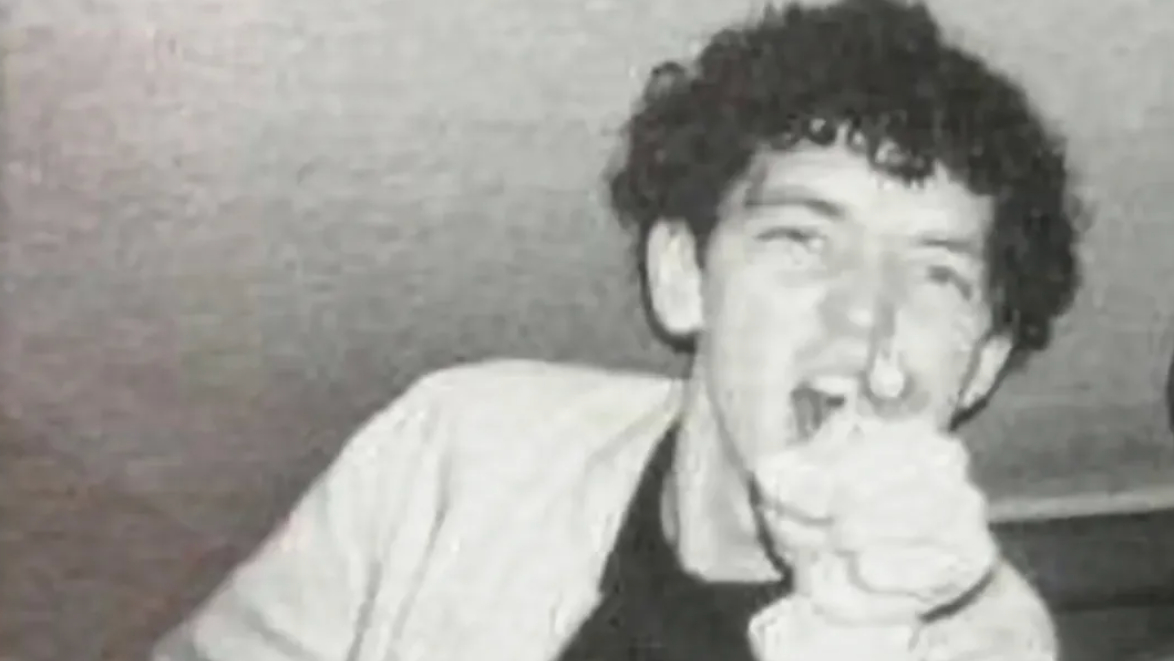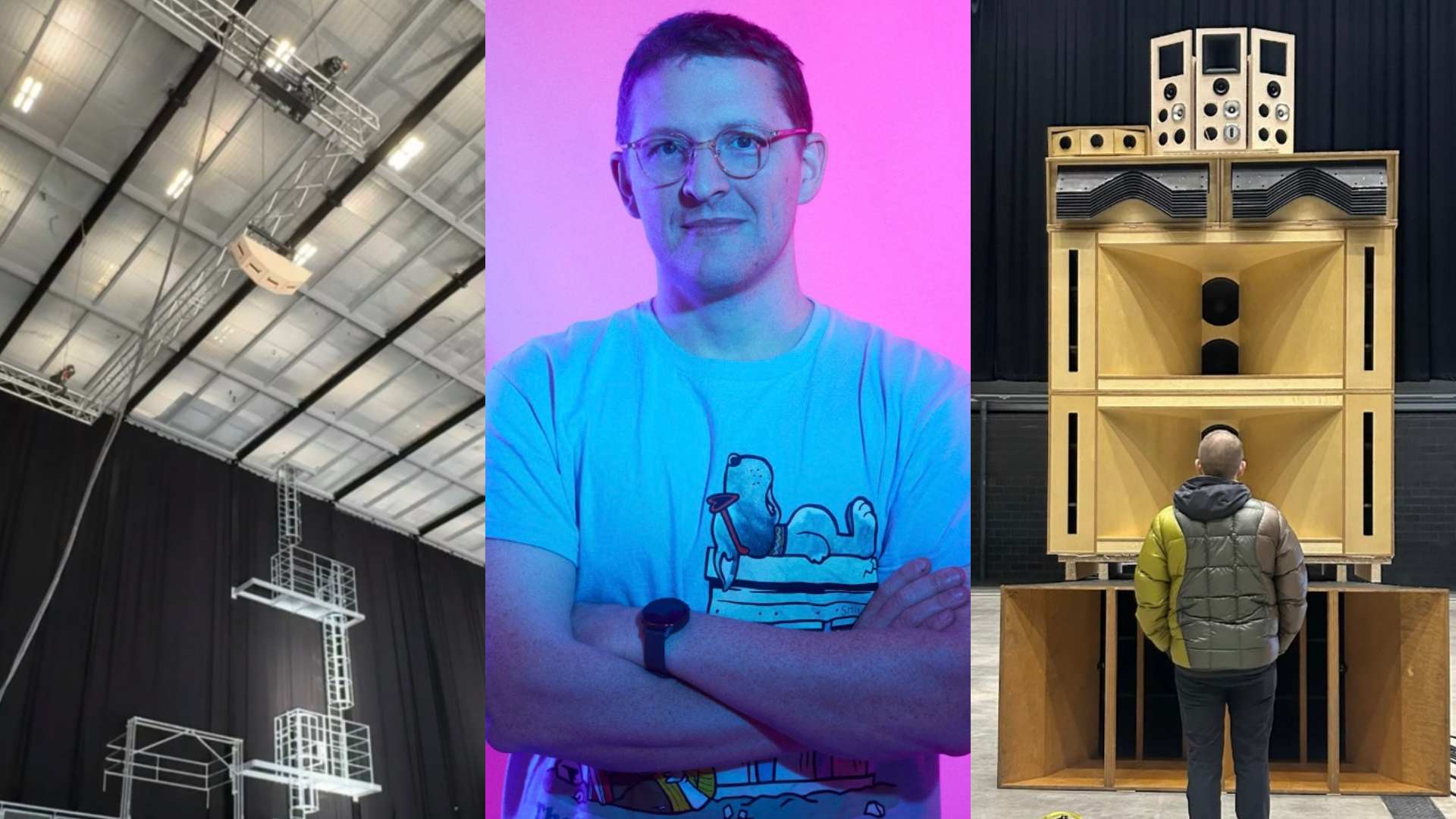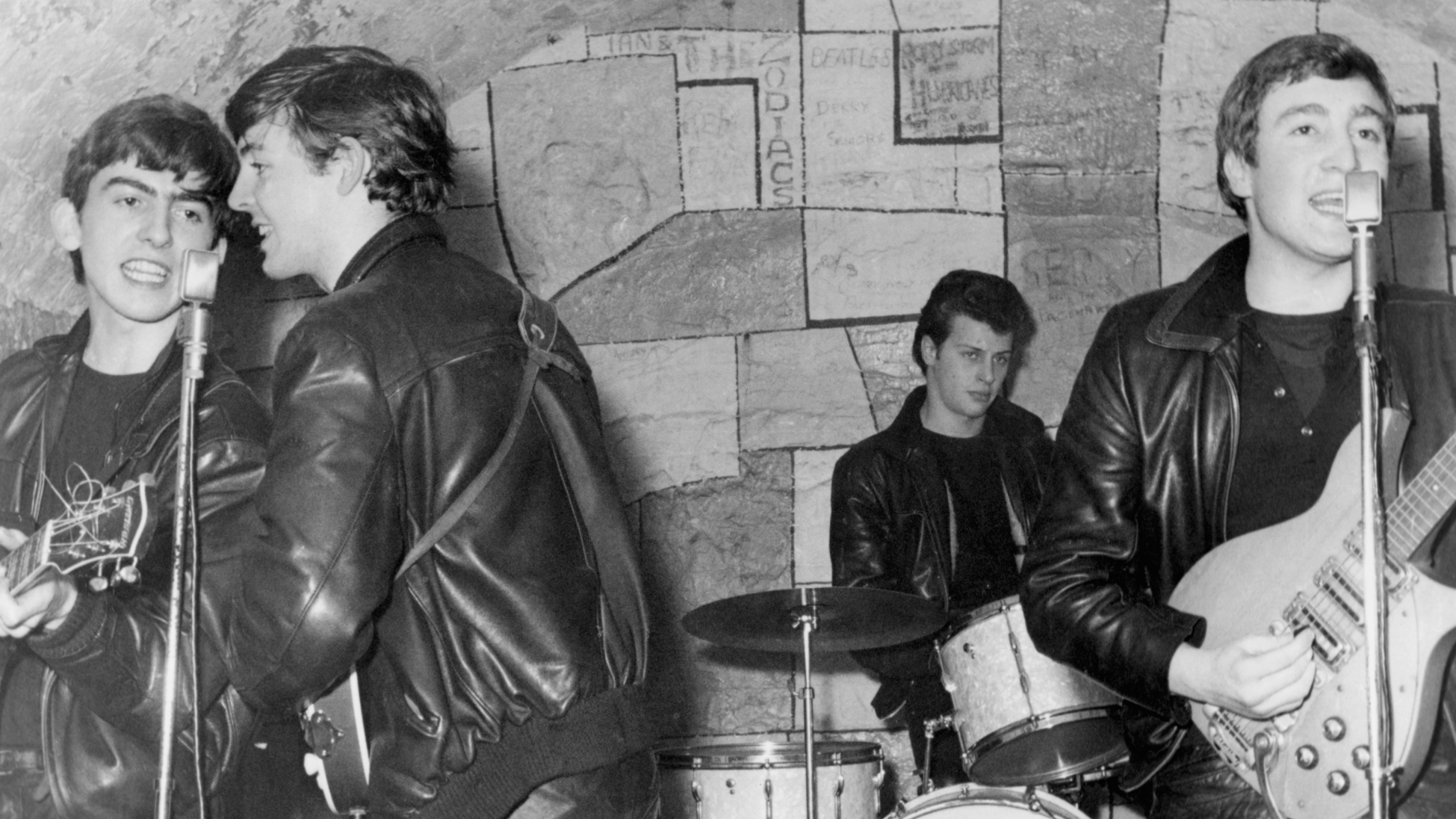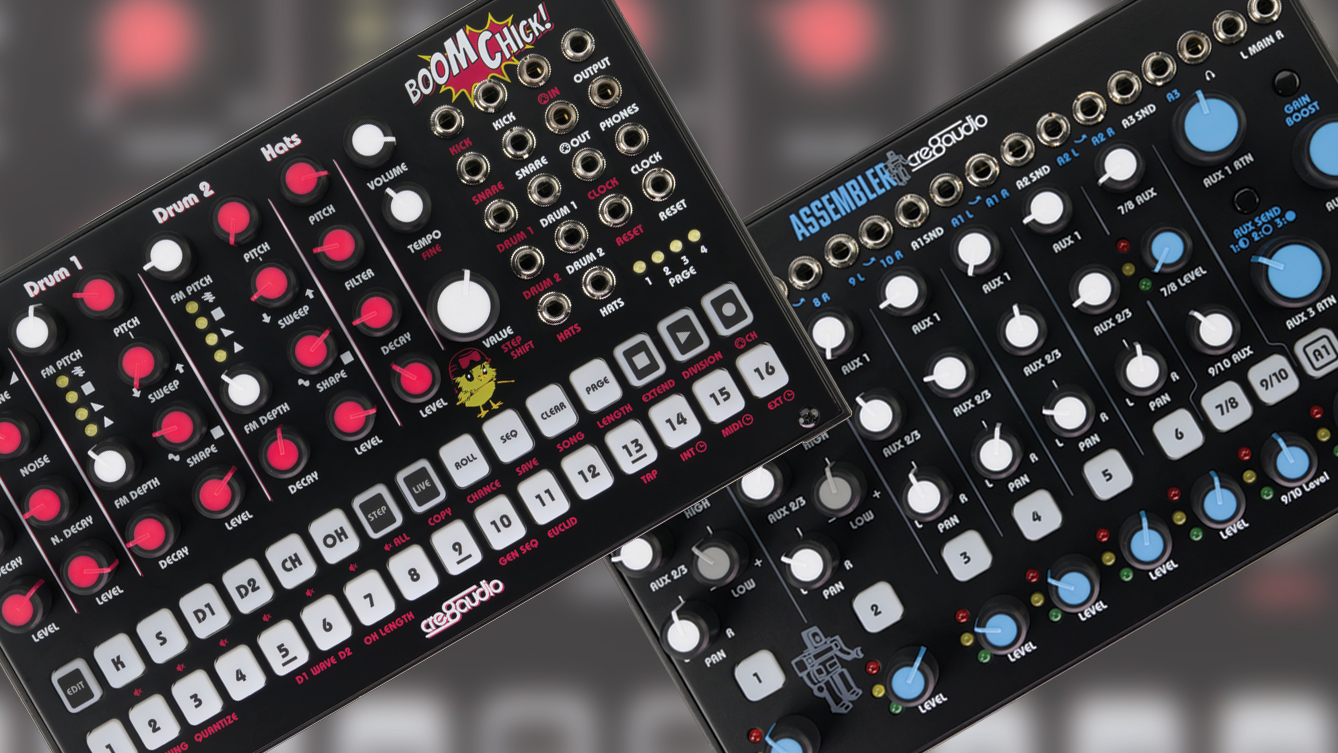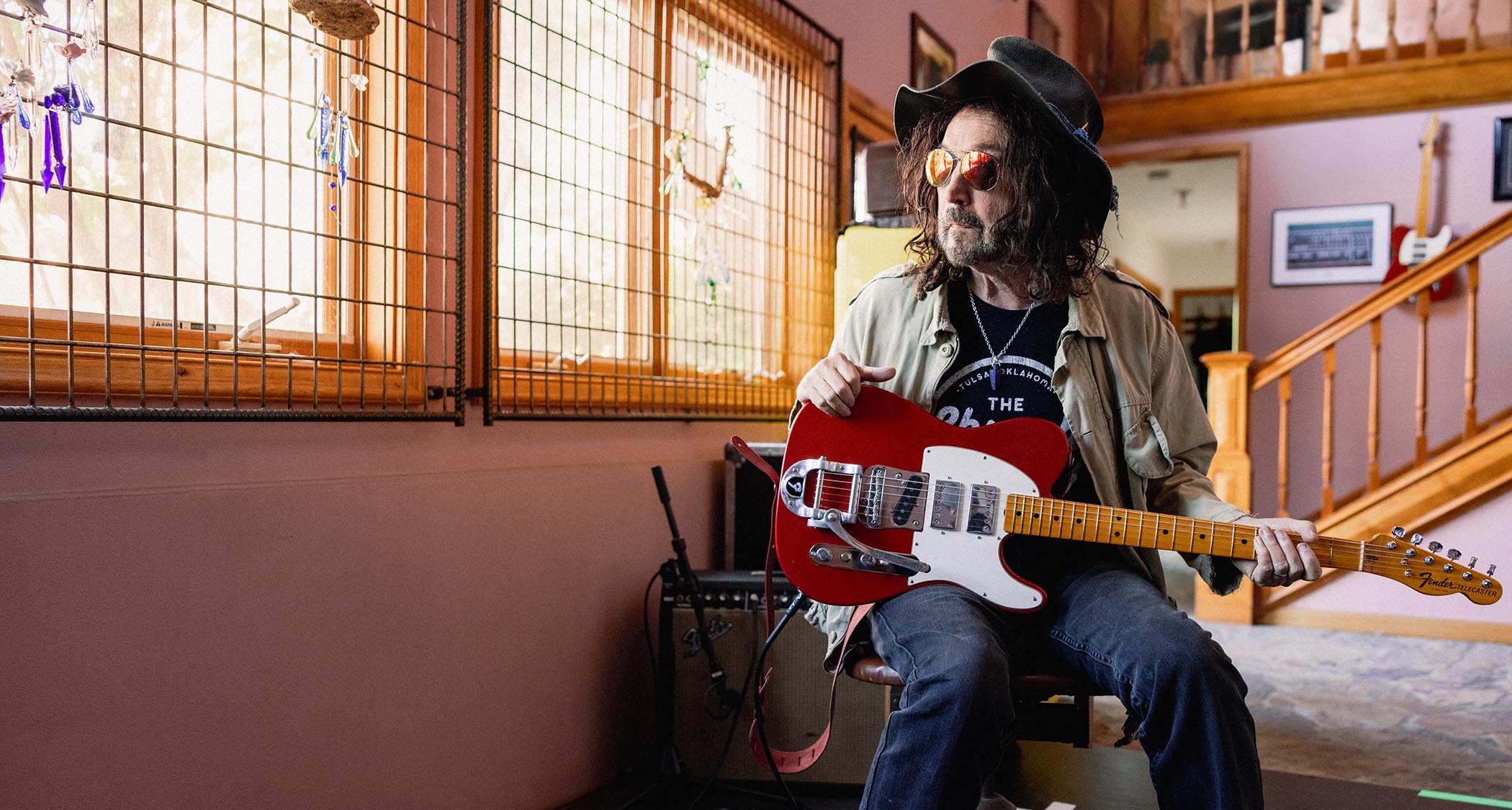Walking Papers' Jeff Angell: my guide to the best Seattle guitar albums
Frontman shares his grunge-era faves
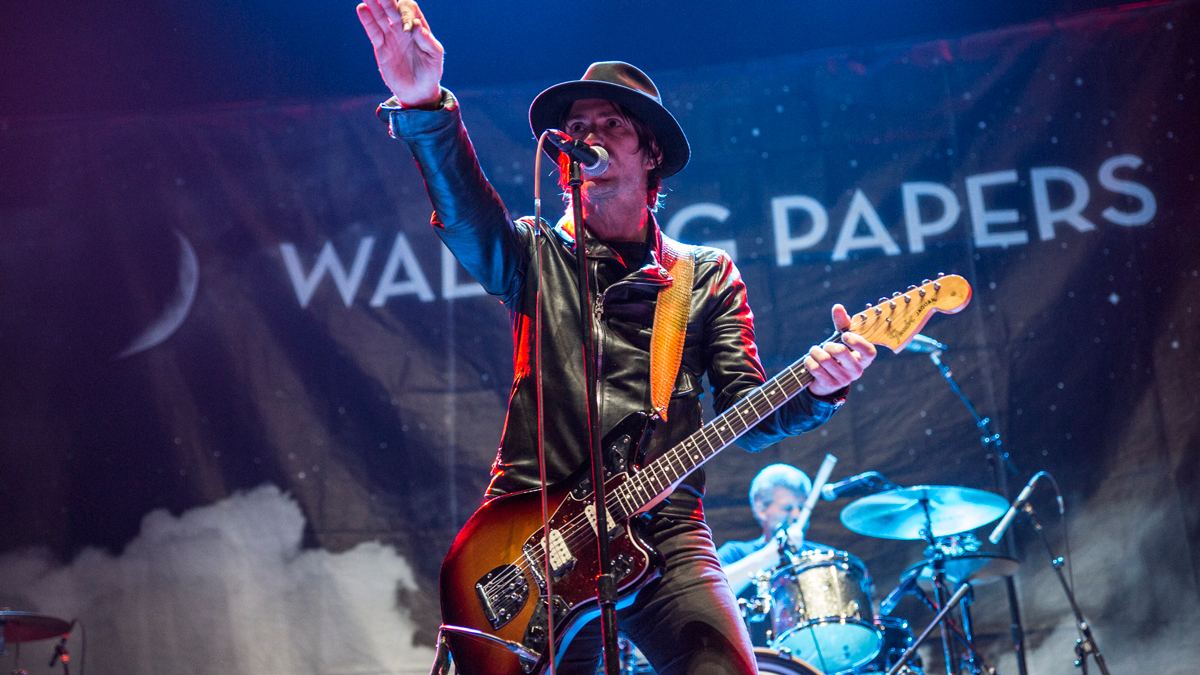
“We were never a Guns N’ Roses or Screaming Trees side-project,” admits Walking Papers singer/guitarist Jeff Angell.
“The best way of looking at it was Duff McKagan and Barrett Martin were kind enough to back up my songs and introduce me to their audiences… Now the door is open, I might as well walk through it.”
In 2013, when Walking Papers released their eponymous debut album, a lot of attention was paid to the pedigree of the musicians performing on the album. And quite rightly - along with featuring members of Guns N’ Roses and Screaming Trees in its core line-up, there were also a handful of soaring guitar leads courtesy of Pearl Jam axeman Mike McCready.
We caught Duff [McKagan]’s attention, and he invited me to try out for Velvet Revolver - I actually recorded five or six songs with Slash, Matt Sorum, Izzy and Duff
But, ultimately, the man responsible for the great music was their frontman Jeff Angell - an unsung hero of Seattle that enjoyed some success in earlier projects Post Stardom Depression and The Missionary Position, though not even half as much as he deserved...
“Post Stardom Depression were pretty well-known in Seattle,” he explains. “We got a deal with Interscope, but once we were on a major label everything screeched to a halt because I just don’t think they knew what to do with us. At the time, it was all about Korn and Limp Bizkit - though we did have a good run supporting Queens Of The Stone Age and Dee Dee Ramone.
“We caught Duff’s attention, and he invited me to try out for Velvet Revolver - I actually recorded five or six songs with Slash, Matt Sorum, Izzy and Duff before they took off. Eventually Izzy backed out and Scott Weiland got the gig. I stayed friends with Duff, probably because I didn’t let the cat out of the bag.
“One day I was opening up for one for Barrett’s bands, he said he’d love to do something and had some studio time. He invited Duff to play bass; once he heard my songs he said he’d be happy to join and tour to support the record. That’s how it all got started!”
Get the MusicRadar Newsletter
Want all the hottest music and gear news, reviews, deals, features and more, direct to your inbox? Sign up here.
Take WP2
This year’s second full-length, recorded at QOTSA leader Josh Homme’s Pink Duck Studio in Burbank and titled WP2, builds on the soulful foundations laid by its predecessor and ended up being more of a team effort.
Because, as Angell rightfully explains, when you have “a monster rhythm section like that” you capitalise on the wealth of talent at your disposal. As fate would have it, Guns N’ Roses would be gearing up for one of the highest grossing tours in music history and Duff McKagan’s diary was about to get a whole lot busier...
“We made the record and then all the GNR stuff started sparking up,” says Angell. “For a minute, we thought it might be just one tour and we’d wait it out. Of course, this thing grew some legs and made a fortune. Until people stop buying tickets, I don’t see those guys stopping! So during that time I made the Staticland record and did a couple of tours for that.
“We came to terms with Duff probably not being available; everyone said I should go off and pursue it myself because this was my baby in the first place. I knew I was going to piss people off, but I wanted to get out there and play these songs.”
Here, the whiskey-voiced balladeer gives us his guide to the ultimate Seattle records...
1. Soundgarden - Louder Than Love (1989)
“This came out before everything exploded. It was like the blueprint for how the guitar was going to sound in Seattle. On some of those songs, like Hands All Over and the title track, they were genius in a psychedelic way. And on others like Big Dumb Sex and Get On The Snake, they were going for this super-heavy riff-rock. Looking back, these albums were still some of the heaviest stuff to come out of Seattle.
You could easily fill out this list with just Soundgarden
“The band were as pure as art can be. Weird tunings, crazy time signatures. They weren’t ignoring the building blocks of music, they were embracing the classic rock they grew up on - you can hear the Zeppelin and Sabbath influences all over their music, but they took it to new places. You can’t really be a more perfect band than Soundgarden when it comes to integrity.
“A lot of the songs were super-complicated compositions, with open tunings in 13/8 or whatever, yet no-one really noticed that… it was really aiming from the heart. I think Ben Shepherd had a lot to do with that, when he joined the band stuff got really weird and quick. You could easily fill out this list with just Soundgarden.”
2. Alice In Chains - Facelift (1990)
“I think Alice In Chains could be the biggest influence on me out of all of these bands! Facelift is a perfect record for me - which is funny because a couple of the guys aren’t into one or two of the songs and I’ve told them that they’re crazy. The album is perfect, front to back. I’ll argue with Sean Kinney about the song Real Thing, who might think it’s stupid and I explain it’s bluesy and awesome.
“It’s definitely their bluesiest record, especially some of the stuff that’s on the ass-end of the record. If you listen to a lot of those songs, like Sunshine or even Rooster which was on their next album, it’s Sean who would make the tempos drop right before the chorus hits.
“We’ve talked about these things: he thinks a lot about playing each part at the tempo it should be played rather than everything on a grid at 126[bpm] or whatever. There’s no flavour doing that. I see Sean loads because he lives in the same neighbourhood and their bassist Mike Inez keeps in touch, too; he’s also one of the sweetest guys you’ll ever meet.”
3. Mark Lanegan - The Winding Sheet (1990)
“Living in Seattle during those years, the one record that sounds most like Seattle for me is Mark Lanegan’s first solo record. He had Mark Pickerel playing drums, Krist and Kurt from Nirvana on there… this record really sounded like Seattle felt - very dark. I was probably 13 around that time.
“Funnily enough, I’ve never met Mark, though it seems like everyone else knows him, but I have met Krist a couple of times. Down In The Dark is one of my favourites, which has Jack Endino on bass - he also produced it, so it really feels like an early Seattle Sub Pop record. It came out around the same time as Nirvana’s Bleach, just before everything exploded.”
4. Mother Love Bone - Apple (1990)
“My first gig was Alice In Chains and Mother Love Bone at the Skate King. There were probably about 200 people there, and that made me go home and start a band. Within a few years, I’d opened up for both of them, despite being only 15 years old or so. I think they were smart, dragging us along to get more kids down to the all-ages shows because we couldn’t play bars at the time.
“The day before the record came out, I played one of the last shows [singer] Andrew Wood did [before dying], so it hit pretty hard. It was like everyone thought all the drugs and heroin was just fun and games until he passed away. It was really sad, no-one really knew at the time, but later when Pearl Jam became huge, we all realised how much success they could have enjoyed.”
5. Nirvana - Incesticide (1992)
“I don’t know which I prefer out of Incesticide or In Utero. But then there’s the song Breed on Nevermind… is that not their best song or their riff? They could be really, really heavy at times. I remember when Bleach came out; we almost didn’t know if it was a joke or if they were being serious. It was almost like they were making fun out of heavy metal with Negative Creep and stuff like that. It was fun with this crazy punk energy.
“They also had real records made in real studios, unlike the cassette tapes done in some friend’s garage. You can hear a song like About A Girl and know there was this pop genius they were scratching the surface of. I remember hearing Smells Like Teen Spirit on the radio while in the car. And I said, ‘I think that’s Nirvana?!’ That’s what happens: a band makes records on their own, then they sign with a label who help clean it up and sell it to the masses.
“My friend didn’t believe it was Nirvana - it was such a quantum leap from something raw to perfectly heavy and perfectly poppy. They loved giving their songs weird names… didn’t anyone tell that would make it hard for them to find success? They could have been so much bigger if Teen Spirit was called Here We Are Now Entertain Us! Just kidding, haha...”
6. Jane’s Addiction - Nothing’s Shocking (1988)
“Now, granted, they are an LA band, but they filmed their Soul Kiss home video at the Paramount in Seattle, when Mother Love Bone and Soundgarden opened up. Most people don’t seem to understand just how big an influence they were on all the Seattle bands.
For Mother Love Bone and Alice In Chains, who had the same guy Dave Jerden produce their records, Jane’s Addiction was pivotal
“Rumour has it that [early grunge pioneers] Green River saw Jane’s Addiction play, and Mark Arm and Steve Turner quit soon after because they wanted to be more punk, while Stone and Jeff wanted to embrace the arena-rock side of what Jane’s Addiction were doing. That’s when all the big hats and glasses came out, so for Mother Love Bone and Alice In Chains, who had the same guy Dave Jerden produce their records, Jane’s Addiction was pivotal.
“Everyone in Seattle felt like Perry Farrell was the alt-rock messiah and Nothing’s Shocking was the greatest record ever made. It’s still hard to argue with that. With songs like Summertime Rolls and Ted, Just Admit It, there are some truly epic things going on with this album.”
7. Heart - Dreamboat Annie (1975)
“There was a big gap between Heart and Queensrÿche when you think about the music around Seattle, but Heart definitely have to be in this list. It’s between this or Dog And Butterfly. Either way, Heart is a huge deal for the Seattle scene. All the bands wished they had a riff as good as Barracuda or solos as good as Magic Man. I’m more of a fan of the mid-'70s version of Heart than the Bad Animals era.
“There’s a famous video of Heart covering Stairway To Heaven and reducing Robert Plant to tears. I’ve met Ann [Wilson] a few times; she couldn’t be sweeter. She makes you want to sit on her lap and tell her what you want for Christmas!
“I think Pearl Jam’s manager was a road manager for Heart - the people with experience ended up helping the younger Seattle bands. Being the elder stateswomen of Seattle, it was like they were saying, ‘Shit’s gonna get a bit nuts here - hold on to your family and friends and don’t let this shit carry you too far away!’”
8. Alice In Chains - Dirt (1992)
“Junkhead is one of my favourite songs by Alice In Chains. It has this Led Zep Dazed And Confused feel but in 3/4 time with some truly amazing vocals. Same with Rain When I Die; Layne could be as poppy and sugary as Adele yet as painful and brutal as Howlin’ Wolf. He was the only one that could do that howl with such power and it was so bluesy. You can hear the notes resonating through his chest and busting out of his mouth hole... even thinking about it gives me the chills.
“I played Rooster with them in California at some big arena thing. I could not stop smiling, my face hurt so bad! Jerry came over to me and said, ‘Hey dude, we’re doing it!’ And I was like, ‘Fuck yeah we are!’ They couldn’t look at me and not smile, because they just knew it was like a dream come true singing with one of your favourite bands ever. Touring with them was enough of a dream; playing with them was just fuckin’ unbelievable. Jerry Cantrell is so cool like that - he has this Johnny Cash kinda delivery.”
9. Zeke - Kicked In The Teeth (1998)
“I don’t want to be too conventional, so this is where I’m going with Zeke. I’ve always felt they were a band perfect for the new generation. They’ve made a lot of records, but each one has its gems.
“They were embraced by Epitaph Records because in Seattle, where everyone was slow and heavy, these guys were fast and pissed - more like Motörhead. It was the antithesis of everything Seattle and yet at the same time a perfect Seattle band as well!
“There was a whole subculture after the main Seattle bands - more punk and thrash things going on. That in turn inspired tons of other bands to get started wearing truckers, baseball caps and down-picking as fast as they could.
“It was the same ingredients as Kill 'Em All-era Metallica, but taking it in a more punk direction and away from the epic side in two-minute blasts. The Black Halos, High On Fire... there are quite a few bands that went on to continue that kinda sound.”
10. Temple Of The Dog - Temple Of The Dog (1991)
“I think Chris Cornell found his lower voice on this record. Louder Than Love was a screecher, so he did this and then Badmotorfinger came out not long after. Who else can pop out a side project in between your major label debut and its follow-up? It’s like Chris didn’t even worry about it - he literally just threw himself into the music.
I walked off the stage, there was Stone Gossard, Chris Cornell and Sean Kinney in the wings saying, ‘Hey Jeff, great job... you killed it and Layne would have loved that!’
“Listen to Reach Down or Say Hello 2 Heaven and his range is just ridiculous, spanning four octaves or something like that. I don’t know if anyone’s measured it against Freddie Mercury or Axl Rose, but Chris had complete control of that thing, all the way. He was almost more like a Baptist gospel/soul singer than a rock guy.”
“I got to meet Chris a couple of times - I did the Mad Season [25th anniversary concert] thing and when I walked off the stage, there was Stone Gossard, Chris Cornell and Sean Kinney in the wings saying, ‘Hey Jeff, great job... you killed it and Layne would have loved that!’ I couldn’t believe it: all my heroes were there and they knew my name! I’ll never forget that moment.
“One time I was in a coffee shop and [Soundgarden bassist] Ben Shepherd was behind me, asking if I was the singer of The Missionary Position. He said we were his favourite band and wanted to buy merch, so I sold him two records and two shirts right there on the street! Since then, as Walking Papers built up, we did some festivals together, hanging out backstage as Chris would do his vocal warm-ups in the other room. I was trying to play it cool, but that was rock ’n’ roll heaven for me.”
11. Mad Season - Above (1995)
“I can’t include Temple Of The Dog and not have Mad Season in here too. By the way, you see how goddamn hard it is to break out of Seattle?
“Imagine if you’re me, making all these records over the years, this is what you get measured by. You can’t compete with these guys: Kurt, Layne, Eddie and Chris are the best in the history of rock music! The guitar players are all monsters, and then there’s the drummers… Had I come from Lincoln, Nebraska, I would have been a star, haha!
“But I love how loose this record is. It was done really quick and on the fly. Layne Staley found his voice on this record because it was just him writing his parts. Jerry Cantrell is a songwriting genius, no doubt about it, but this record was Layne proving he could do stuff on his own very well, too.”
Walking Papers' second album, WP2, is out now via Loud & Proud Records.
Amit has been writing for titles like Total Guitar, MusicRadar and Guitar World for over a decade and counts Richie Kotzen, Guthrie Govan and Jeff Beck among his primary influences. He's interviewed everyone from Ozzy Osbourne and Lemmy to Slash and Jimmy Page, and once even traded solos with a member of Slayer on a track released internationally. As a session guitarist, he's played alongside members of Judas Priest and Uriah Heep in London ensemble Metalworks, as well as handling lead guitars for legends like Glen Matlock (Sex Pistols, The Faces) and Stu Hamm (Steve Vai, Joe Satriani, G3).
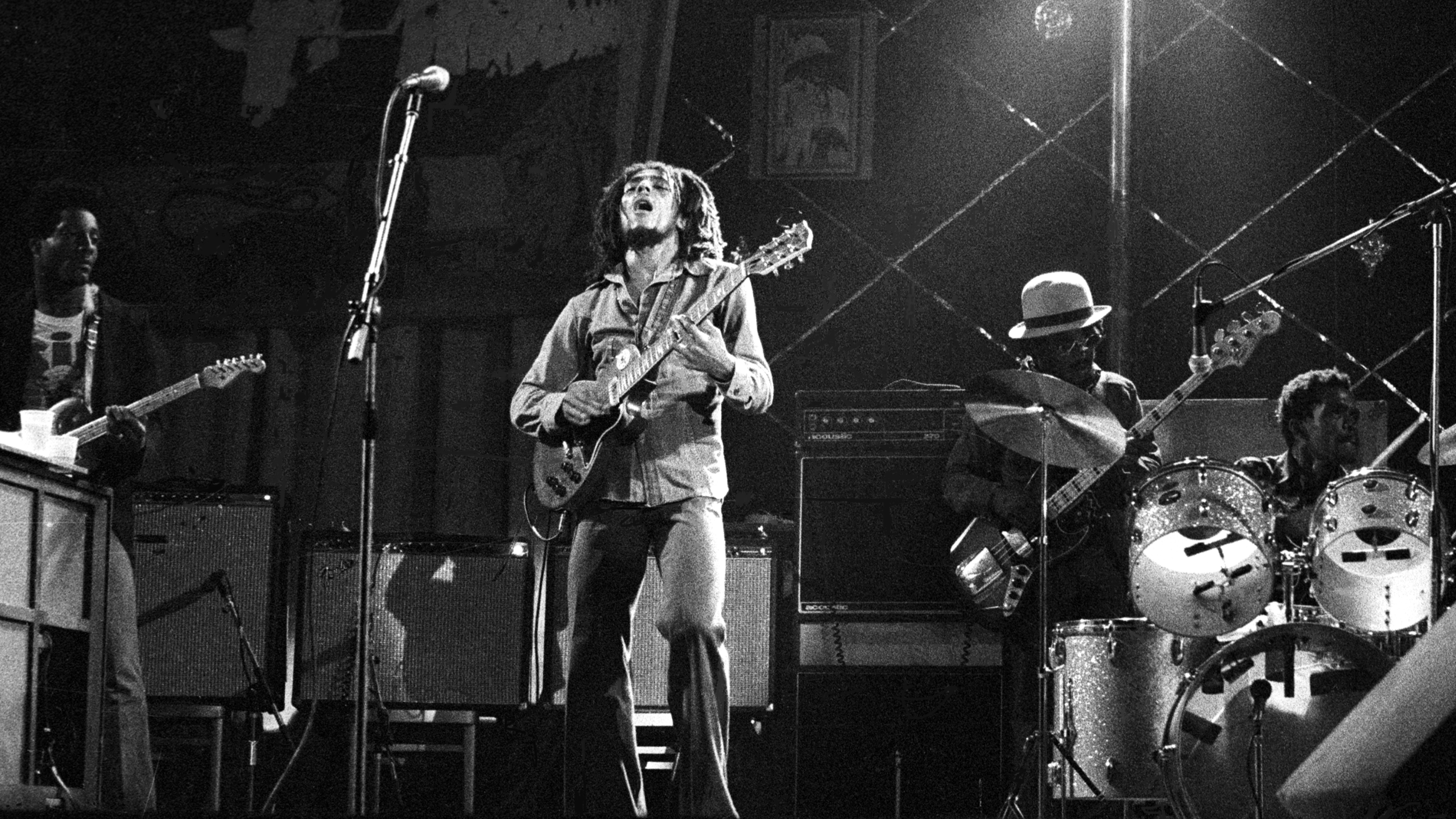
"Reggae is more freeform than the blues. But more important, reggae is for everyone": Bob Marley and the Wailers' Catch a Fire, track-by-track
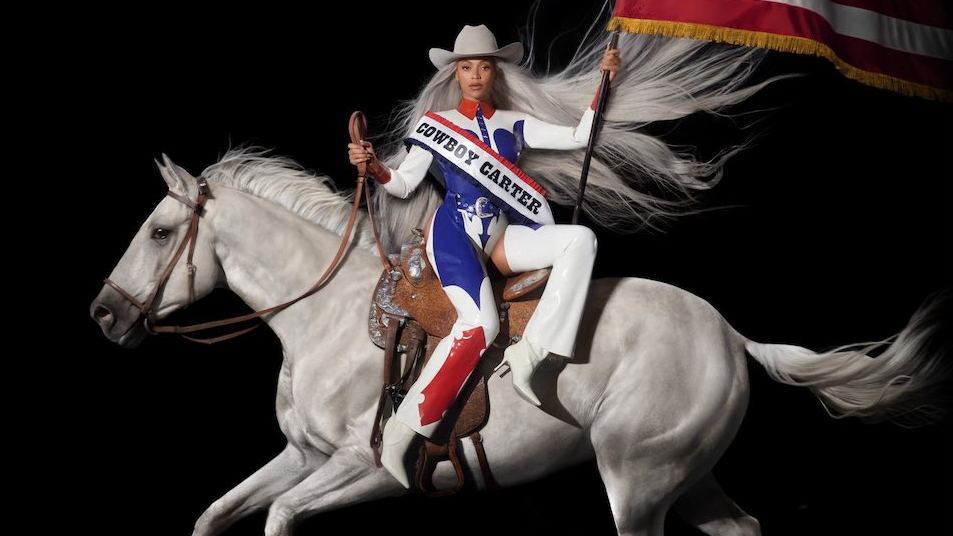
“Part of a beautiful American tradition”: A music theory expert explains the country roots of Beyoncé’s Texas Hold ‘Em, and why it also owes a debt to the blues

